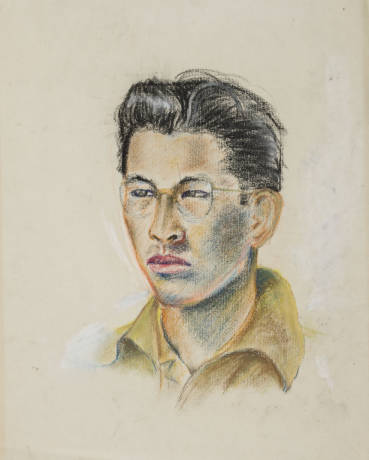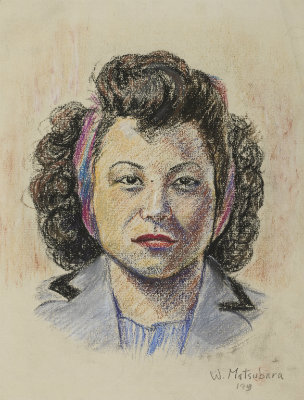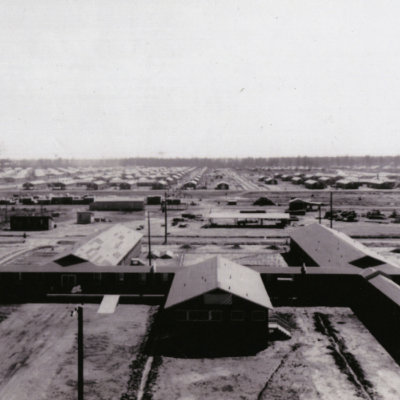Education in Exile
Student Experience at Rohwer Relocation Center
Education in Exile: Student Experience at Rohwer Relocation Center is third in the Butler Center's series of exhibitions exploring the Japanese American experience in World War II Arkansas. Partially curated by students throughout the state, Education in Exile offers a unique perspective into the school systems at Rohwer and Jerome, the two Japanese American incarceration centers in Arkansas. Student-selected works of art from the Butler Center's Rosalie Santine Gould - Mabel Jamison Vogel collection illustrate what life was like for students living behind the barbed wire at Rohwer and Jerome.
A Transportation Mini-grant Fund is now available to help primary and secondary schools offset the cost of travelling to view these exhibitions. For eligibility criteria or for an application, click here »
January 12 - June 30, 2018
Monday - Saturday, 9:00 a.m. - 5:00 p.m.
FREE and open to the public
Butler Center for Arkansas Studies
Concordia Hall Gallery
401 President Clinton Avenue
501-320-5700

Portrait of a Man
Unknown Rohwer Internee
watercolor
c. 1942-1945


